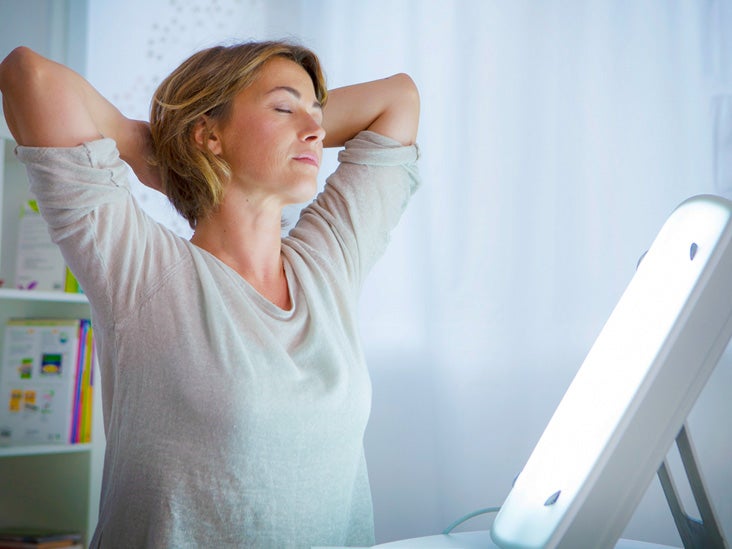Don't Be SAD: How Weather Affects Mental Health
Has the cold weather put you in a slump? Do you find yourself losing focus and motivation during the winter months? You may be suffering from Seasonal Affective Disorder, a form of depression related to changes in the weather. This article will discuss what having SAD means and some ways you can combat your winter blues.
As summer comes and goes and the winter months fall upon us, many people experience a loss of energy and feel overall more down. The decrease in sunlight may cause a change in your body’s circadian rhythm and a drop in serotonin. While you may not be suffering from full-blown Seasonal Affective Disorder, your shift in mood could very well be caused by the colder weather. However, there are things you can do during the winter months to lift your spirits and bring back your motivation.
Take advantage of whatever sunlight you can get
On sunny days make sure to spend time outside, whether that's going for a walk or simply sitting in the sun for a few minutes. Making sure to get out of your house and into the daylight whenever possible will boost your mood. If getting outside in the below-freezing weather is not appealing, another option is to invest in a sunlight lamp. Phototherapy boxes were designed to give off light that mimics the sun and are significantly brighter than regular lamps. Sitting in front of this lightbox for half an hour every morning will result in a chemical change in your brain and get your circadian rhythm back on track.
Make social activities a priority
If you tend to isolate yourself more during the winter months you may be unintentionally feeding your seasonal depression. Planning fun activities and seeing friends will help you get out of the house and feel less isolated. Making an effort to meet up with friends for coffee or a study session may seem daunting if you are struggling to leave the house in the cold weather, but will positively affect your mental health.
Find a schedule to stick to
Your circadian rhythm is your body’s biological clock and regulates your sleep-wake schedule. With changes in daylight, many people experience a disruption in their sleep cycle during the winter months and have trouble falling asleep or getting up. Keeping a predictable schedule will allow your circadian rhythm to stabilize and expect light or darkness at predictable times, soothing your seasonal depression. Furthermore, keeping to a consistent schedule is known to relieve symptoms of general anxiety and depression and will allow you to feel more productive throughout the day.
Get some exercise
Getting your recommended 30 minutes of physical activity per day is vital to your physical and mental wellbeing. Exercising releases endorphins into your brain, specifically serotonin, the happy chemical. Furthermore, exercise is known to help your sleep cycle and make it easier to fall asleep at night. Exercise therefore can help with two of the major symptoms of Seasonal Affective Disorder, low levels of serotonin and an unusual sleep cycle. If you arent up to heading outside for a run or going to the gym, Youtube has millions of at-home workout videos which are just as effective and can be super fun.
Try out some or all of these tips when you feel the cold weather affecting your mental health. Making small changes towards a healthier lifestyle especially when you are struggling with motivation can have big results. Do you have any other tips or strategies you use when you are feeling the negative mental effects of the winter months?

/iStock-614055308-58dc0f983df78c5162727b20.jpg)


I think that this is even more important due to the change in behavior caused by COVID. Everyone was encouraged to stay home and far away from other people, and as a result many people have gotten used to staying inside for longer. It's really easy for your sleep schedule to be negatively affected by bad weather, especially when you don't have classes or work. Also, all of the advice is solid for any time, not just winter. In conclusion, I think that this was informative and helpful to not just people with SAD, but everyone.
ReplyDeleteI'm glad you found this article useful! I completely agree with your point about COVID amplifying the effects.
DeleteI think that your article was well-written and definitely applicable to everyone, but especially for college students. In college, a lot of students struggle with mental health issues and may not always know helpful strategies like these. Personally, I've noticed a large difference in the way that I felt in August/September vs. November/December. During the winter months, I feel less inclined to go outside when its cold and dark. These means I spend less time in the fresh air and less time socializing. One strategy you mentioned that has helped me a lot is exercise. When I exercise I feel less-stressed, productive, and happier overall. One other strategy that wasn't mentioned is nutrition. Making sure to eat healthy definitely helps you sleep and feel better overall.
ReplyDeleteI completely agree, fueling your body is key to feeling good and being happy! Thanks for your tips.
DeleteThis article has a lot of very helpful information, most of which can definitely help someone living in a college lifestyle. College is a time that can be infamous for some due to the high demands and stressful work that people have to do. I've been able to do a few of these things and I can definitely say that these activities had a positive impact on my mental health, especially in the winter months. I think an additional thing that is important is keeping in touch with friends. Even if it's texting, or calling, or video chatting, talking to friends even if you can't see them definitely has helped my mental health.
ReplyDeleteVery true! With COVID still being an ongoing issue sometimes all you can do is keep in contact over text, call, or social media. Any kind of social interaction is better than nothing!
DeleteThis article has provided a lot of helpful suggestions for me. Usually during winter days, I enjoy staying at home and doing something that requires a period of time, like reading, painting and watching animations. Doing these things can free my mind and no longer think of the struggles in my daily life. Though it looks like escaping from reality, it really works. But when next winter comes, I'd like to try some tips from this article.
ReplyDeleteGreat suggestion! I also love reading and painting as well and definitely do those things on a cold winter day.
DeleteThis article is especially helpful for me. As the weather in Pittsburgh is freezing in winter, and winter is especially long, I always find myself lack of energy during cold weather. After reading this article, I realize I can't sit in front of computer all day even in freezing winter. Social activities and exercise can make me energetic.
ReplyDeleteThis blog is very insightful, I'm glad I found it. First of all, I admire your catchy title. Thanks for speaking out about mental illness. Like Joshua said, it is even more important to so due to COVID and the emergence out of isolation. Your tips are very helpful and laid out beautifully. For me, getting some exercise is of the most importance to my mental health. It has been a great escape for me for years, so I would also certainly recommend it.
ReplyDeleteI really enjoyed reading this article and feel like it could help everyone who reads it. I think that mental health is a very serious issue that most college students even though they don't always admit it struggles with it. I think COVID enhanced these feelings for some people with how much it kept us indoors. Sticking to a schedule is a great tip that I have found most effective in helping with stress.
ReplyDeleteI'm glad you enjoyed this article! I agree that speaking out about your mental health is important especially as a college student who experiences high levels of stress.
DeleteThese tips are awesome! Personally, I have found that college is an extremely stressful time and it is really easy to get overwhelmed with classes and other responsibilities. I have definitely used many of the techniques you highlight in your blog. This year, I have found that keeping a planner for each day has greatly decreased my stress level. I also started getting into a consistent workout schedule. With all of this being said, I would personally recommend this blog for people struggling with stress.
ReplyDelete